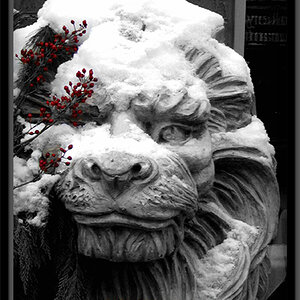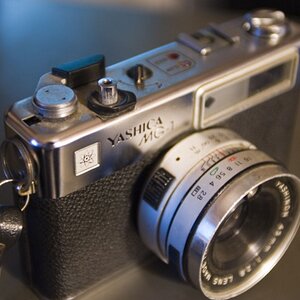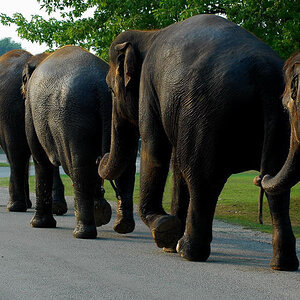jeffdrafttech
TPF Noob!
- Joined
- Jan 3, 2007
- Messages
- 4
- Reaction score
- 0
I bought a Canon SD800is subcompact a couple months ago and am falling in love with taking photos.
I bought a couple photography books and would like to buy another more complex camera to learn more.
I have looked at Digital SLRs, and have read a lot of good things about the Canon Rebel XT. the kit is within my budget but some of the additional glass prices are scary, if I ever decided to upgrade.
I am very interested in the "ultra zoom" category. These cameras seem to have many manual/creative features and an extraordinary lens for a very affordable price. I like the Canon S2, S3, and Sony H5 from what I have read. The IS feature is is a big plus for me because I know Ill be taking a lot of handleld shots. I like the idea of a powerful zoom for getting in close on wildlife.
I have several questions.
1. Is there a real difference between Canon S2 and S3? Resolution is similar (5mp / 6mp) and screen is slightly larger on one (0.2in), but is there any reason to pay $100 more for the S3?
2. The Sony H5 is comparable in price and features to the S3. I also checked them out in a store and the big screen is nice. Subjectively, what do you recommend between these two?
3. At $600 the Rebel XT is very nice. From what I have read, the digital SLRs take better pictures once someone learns the ins and outs. I saw a comparison of High iso shots between the S3 and the RebelXT and was blown away by the Rebel XT side by side in low light (high iso). I like the idea of being able to take sharp pictures in lowish light without flash. But... the powerful zoom lens with image stabilization makes me drool. I don't see myself lugging a tripod around on a hike or a trip to a museum or zoo, so I will be taking most shots handheld. Is it possible to take good shots sans tripod sans flash in lowish light without IS with the rebel XT?
4. Is there a quality yet affordable image stabilized lens for the Rebel XT? I am trying to keep all of this under $1000 if I go SLR, and the camera body + memory will set me back about $600. Any IS lenses under $350 that have decent zoom?
Subjectively, please advise me. I'm going nuts.
Cheers,
Jeff
I bought a couple photography books and would like to buy another more complex camera to learn more.
I have looked at Digital SLRs, and have read a lot of good things about the Canon Rebel XT. the kit is within my budget but some of the additional glass prices are scary, if I ever decided to upgrade.
I am very interested in the "ultra zoom" category. These cameras seem to have many manual/creative features and an extraordinary lens for a very affordable price. I like the Canon S2, S3, and Sony H5 from what I have read. The IS feature is is a big plus for me because I know Ill be taking a lot of handleld shots. I like the idea of a powerful zoom for getting in close on wildlife.
I have several questions.
1. Is there a real difference between Canon S2 and S3? Resolution is similar (5mp / 6mp) and screen is slightly larger on one (0.2in), but is there any reason to pay $100 more for the S3?
2. The Sony H5 is comparable in price and features to the S3. I also checked them out in a store and the big screen is nice. Subjectively, what do you recommend between these two?
3. At $600 the Rebel XT is very nice. From what I have read, the digital SLRs take better pictures once someone learns the ins and outs. I saw a comparison of High iso shots between the S3 and the RebelXT and was blown away by the Rebel XT side by side in low light (high iso). I like the idea of being able to take sharp pictures in lowish light without flash. But... the powerful zoom lens with image stabilization makes me drool. I don't see myself lugging a tripod around on a hike or a trip to a museum or zoo, so I will be taking most shots handheld. Is it possible to take good shots sans tripod sans flash in lowish light without IS with the rebel XT?
4. Is there a quality yet affordable image stabilized lens for the Rebel XT? I am trying to keep all of this under $1000 if I go SLR, and the camera body + memory will set me back about $600. Any IS lenses under $350 that have decent zoom?
Subjectively, please advise me. I'm going nuts.
Cheers,
Jeff


![[No title]](/data/xfmg/thumbnail/37/37494-d432dd0601f47668ec55d04f350f243b.jpg?1619738113)



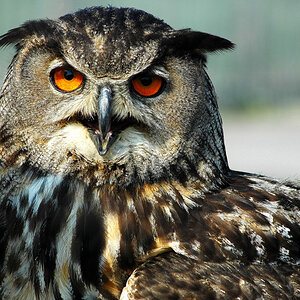
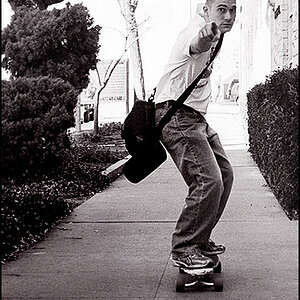

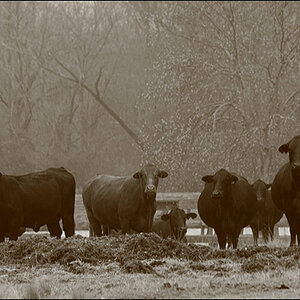
![[No title]](/data/xfmg/thumbnail/30/30991-43abf4dfee0a54010692c71c43f40981.jpg?1619734555)
